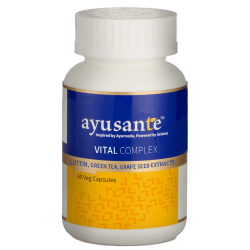Chronic Pains

DISCLAIMER: Though food supplements works some time better than medicines, please do consult with your reliable doctor before consuming any health supplements. Vestige Products are not Medicine, please consult your Doctor, these products are only Food Supplements and Dietary/Nutritional Supplements. Users are advised to rely on information posted herein for any purpose only after verification and confirmation of the same from authentic and authoritative sources.
INFO: Chronic pain is pain that lasts a long time. In medicine, the distinction between acute and chronic pain is sometimes determined by an arbitrary interval of time since onset; the two most commonly used markers being 3 months and 6 months since onset, though some theorists and researchers have placed the transition from acute to chronic pain at 12 months. Others apply acute to pain that lasts less than 30 days, chronic to pain of more than six months duration, and subacute to pain that lasts from one to six months. A popular alternative definition of chronic pain, involving no arbitrarily fixed duration, is "pain that extends beyond the expected period of healing". Epidemiological studies have found that 10.1% to 55.2% of people in various countries have chronic pain.
Chronic pain may originate in the body, or in the brain or spinal cord. It is often difficult to treat. Various nonopioid medicines are recommended initially, depending on whether the pain originates from tissue damage or is neuropathic. Psychological treatments including cognitive behavioral therapy and acceptance and commitment therapy may be effective for improving quality of life in those with chronic pain. Some people with chronic pain may benefit from opioid treatment while others are harmed. In people with non-cancer pain, a trial of opioids is only recommended if there is no history of either mental illness or substance use disorder and should be stopped if not effective.
Severe chronic pain is associated with increased 10-year mortality, particularly from heart disease and respiratory disease. People with chronic pain tend to have higher rates of depression, anxiety, and sleep disturbances; these are correlations and it is often not clear which factor causes another. Chronic pain may contribute to decreased physical activity due to fear of exacerbating pain, often resulting in weight gain. Pain intensity, pain control, and resiliency to pain are influenced by different levels and types of social support that a person with chronic pain receives.



